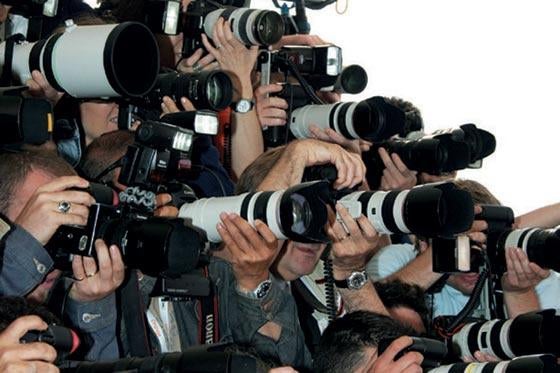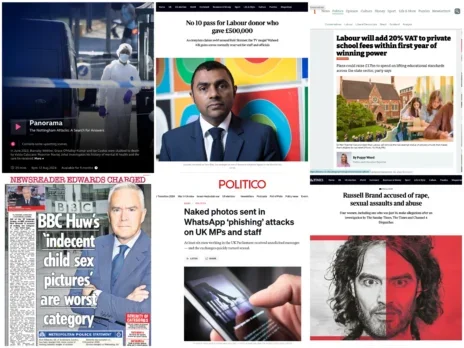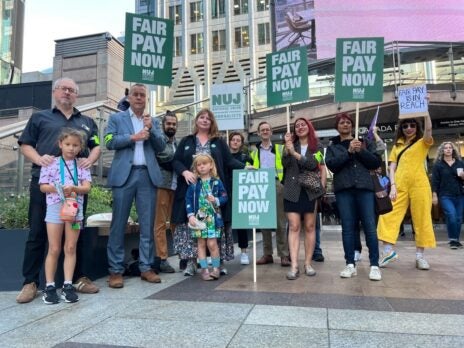
Thousands of photographers have staged a protest against the “malicious” use of stop and search laws.
Trafalgar Square in Central London was lit up by an array of flash bulbs on Saturday as part of a demonstration against police use of terror laws to stop photographers taking pictures.
Freelance photographer and writer Marc Vallee, who helped organise the protest with appeals on Twitter and Facebook, said frustrations with police surrounded the scope of Section 44 of the Terrorism Act 2000.
Vallee said he was “delighted” by the turnout, estimated at more than 2,000 professional and amateur photographers.
He said: “It’s quite surreal today but we are pleased with the support.
“It’s quite obvious that professional photographers across the country are being searched because they are photographers not because they are suspicious.
“It’s a common-law right to take pictures in public places and we are here to show that.”
Many protesters brandished mini placards with the message: “I’m a photographer, not a terrorist.”
Organisers handed onlookers in Trafalgar Square stop and search cards outlining their rights.
Amateur photographer Lucy Hogan, from Twerton, Bath, said: “The support has been incredible. There are so many here today, even photographers from Italy.
“It just goes to show that it’s not only Britain where photographers are treated with such malicious use of the law.”
Shami Chakrabarti, director of Liberty, said: “In the face of Home Office complacency, Liberty has warned of the dangers of blanket stop and search under section 44, for at least a decade.
“We have been completely vindicated by the Court of Human Rights and in the coming weeks MPs will have the chance to change this law. Let’s hope they step up to their responsibilities.”
Earlier this month the Fourth Chamber of the European Court of Human Rights held that sections 44 and 45 of the Terrorism Act 2000, which give the police stop and search powers, violate the European Convention on Human Rights.
The right to question people without grounds for suspicion breached Article 8, which guarantees the right to respect for privacy and family life, the court said, because it was too widely drawn, gave police too much discretion, contained no safeguards for individual rights and was open to arbitrary use.
Email pged@pressgazette.co.uk to point out mistakes, provide story tips or send in a letter for publication on our "Letters Page" blog




